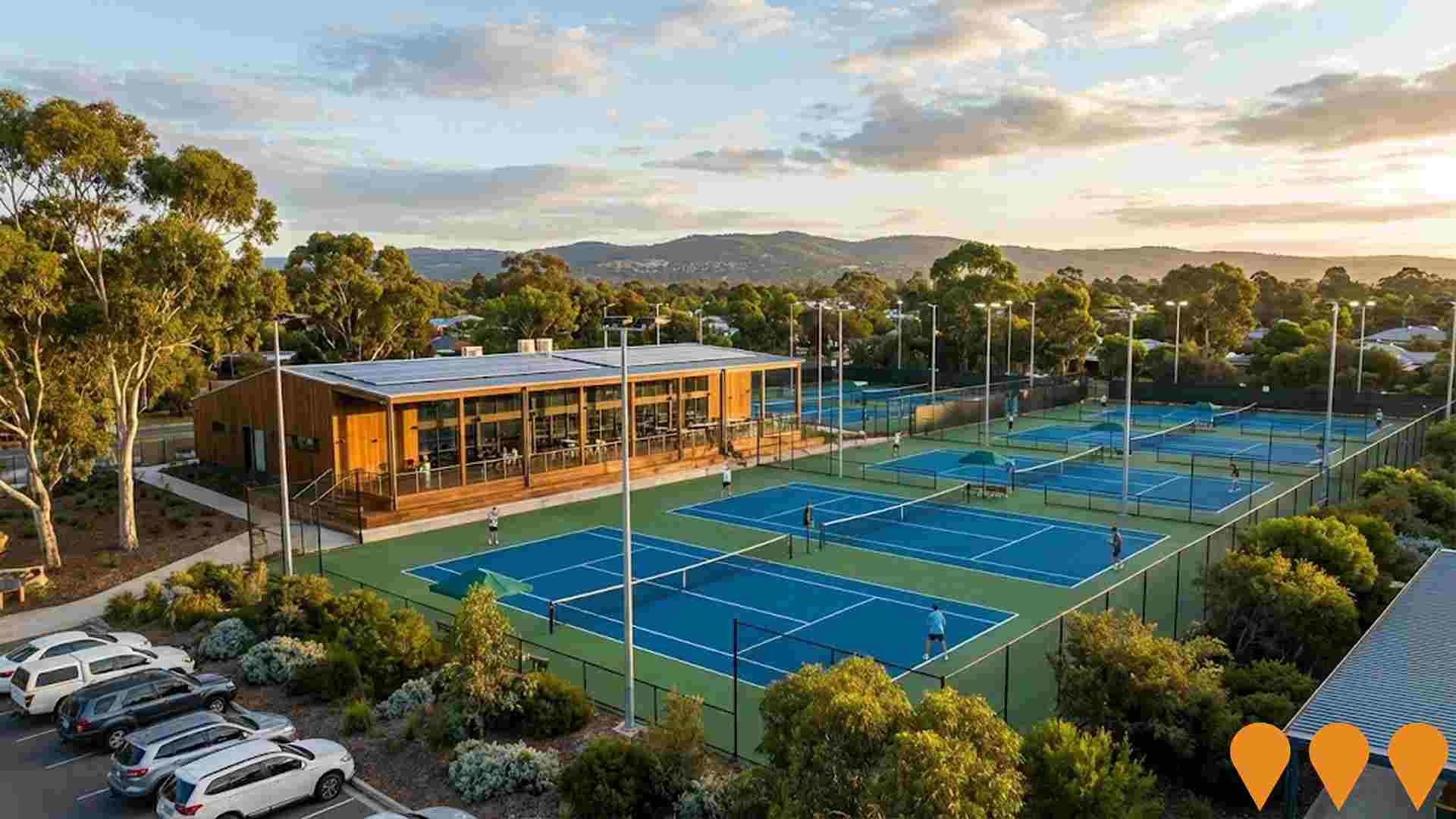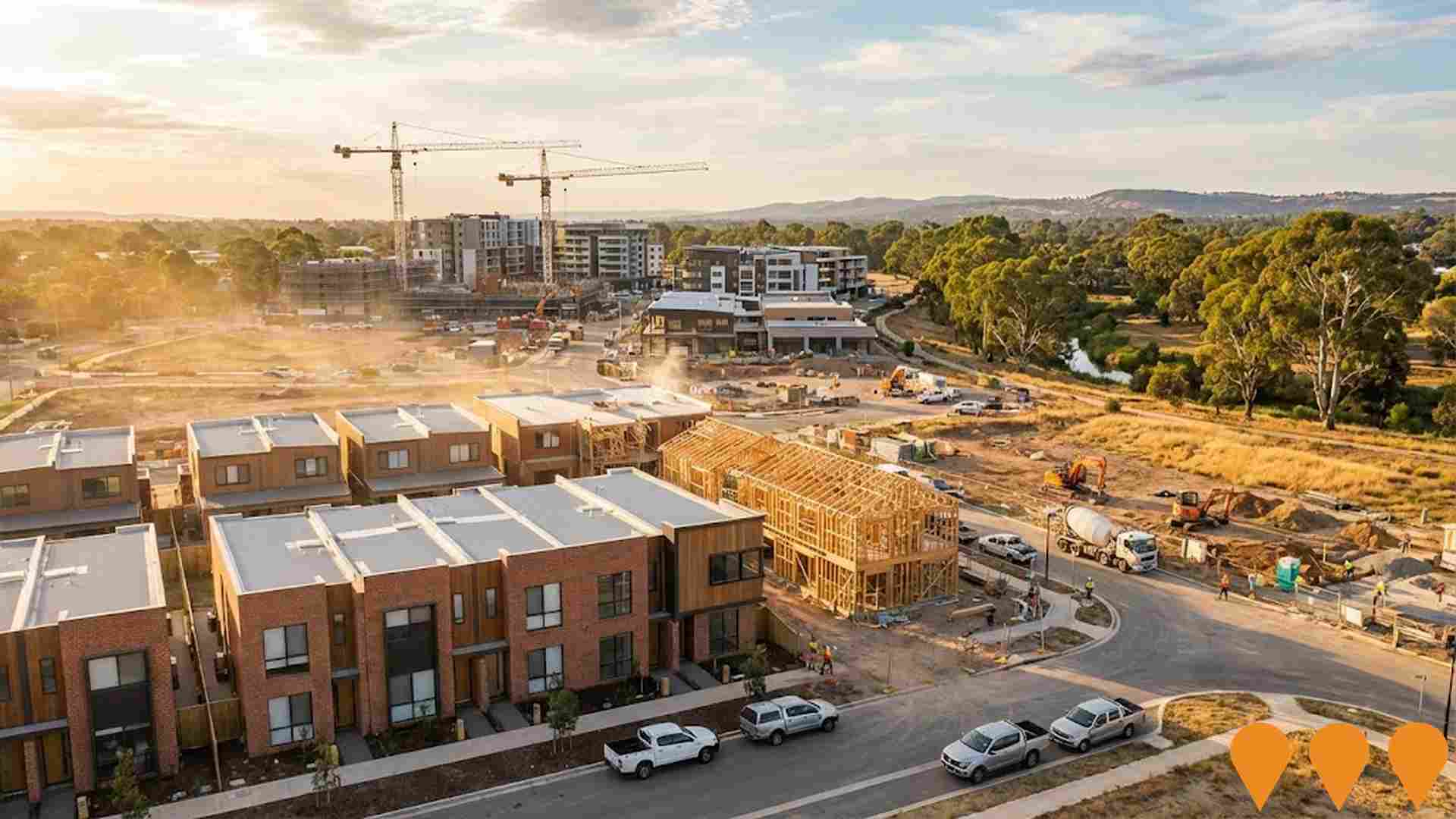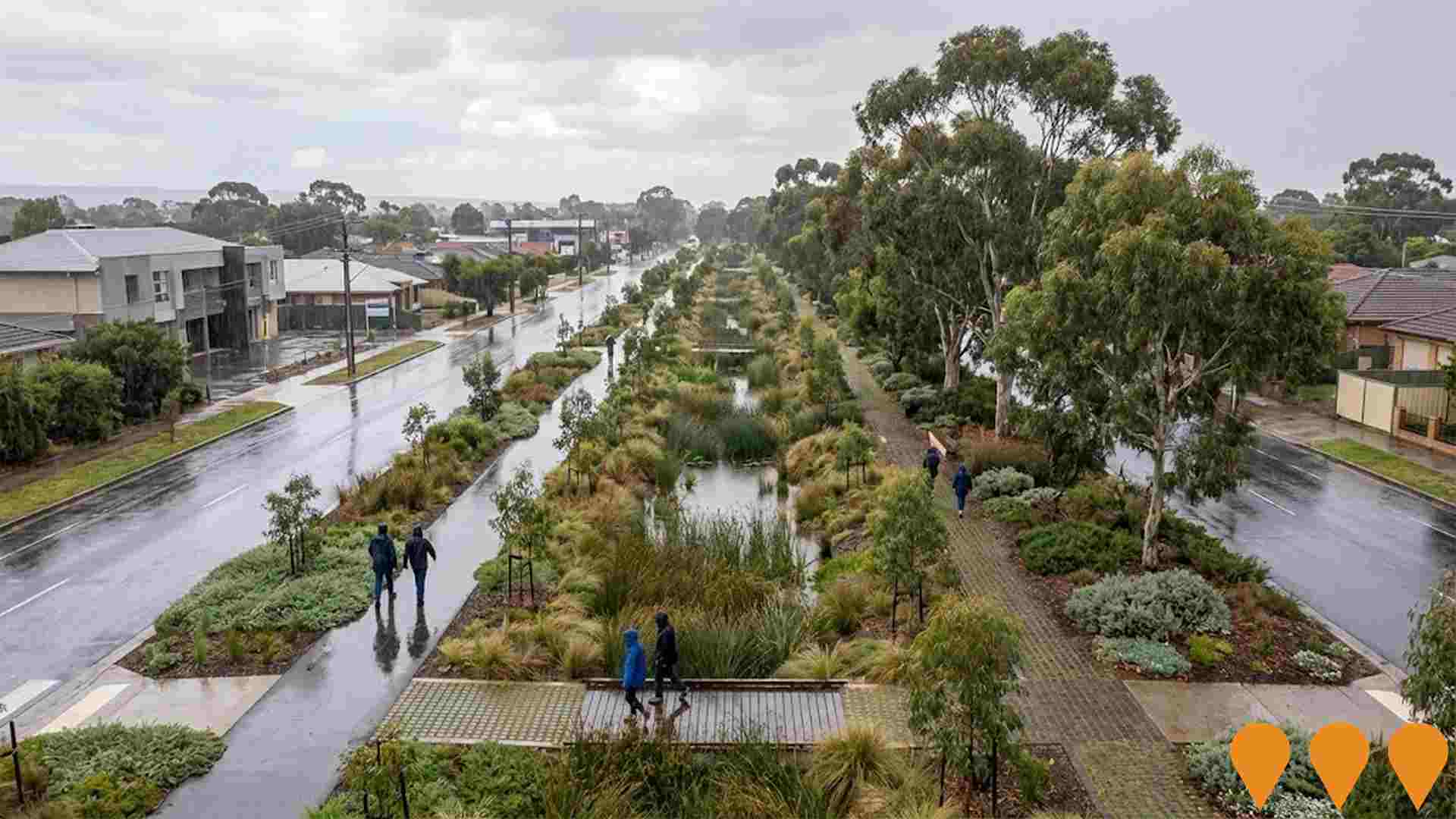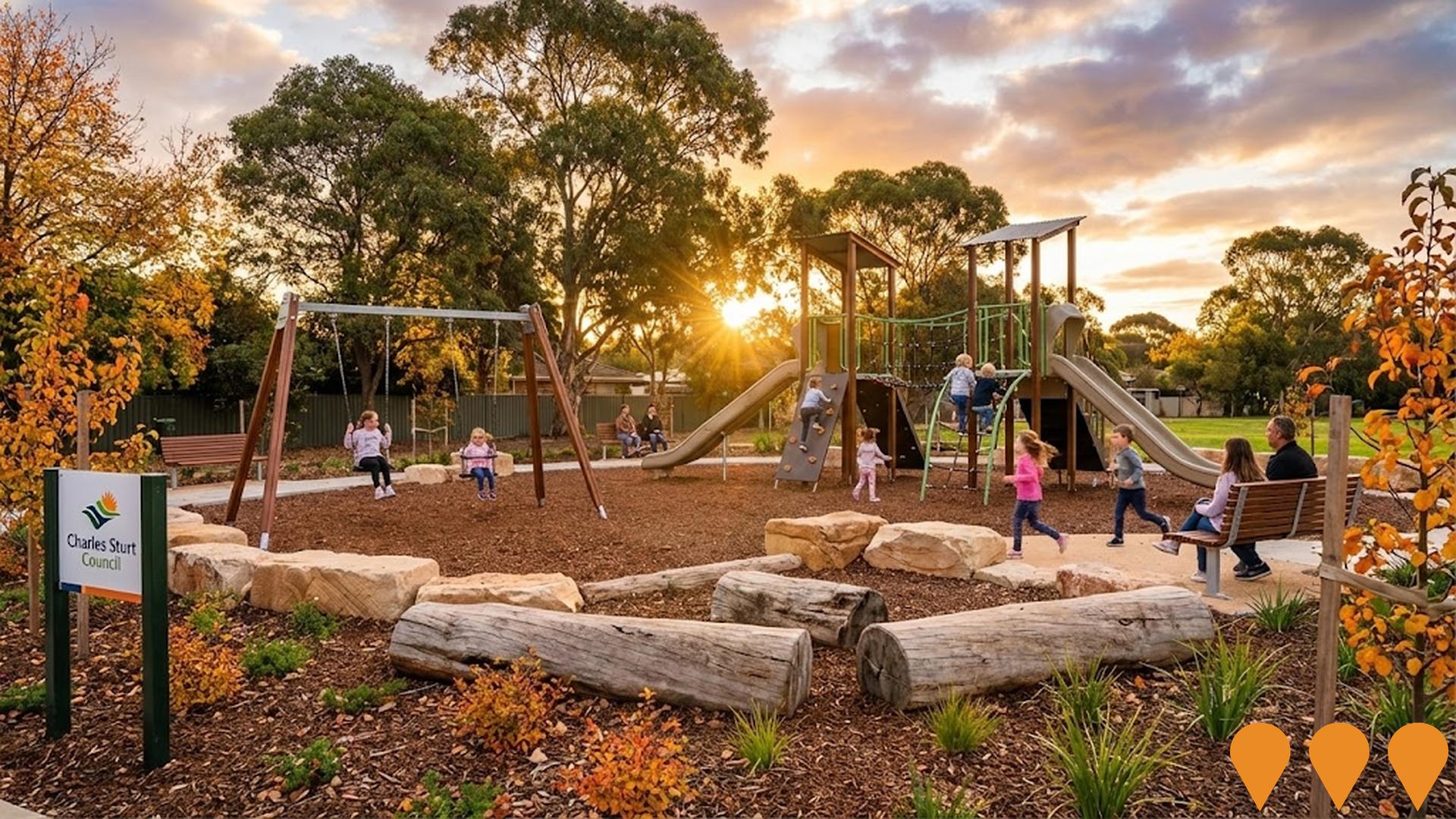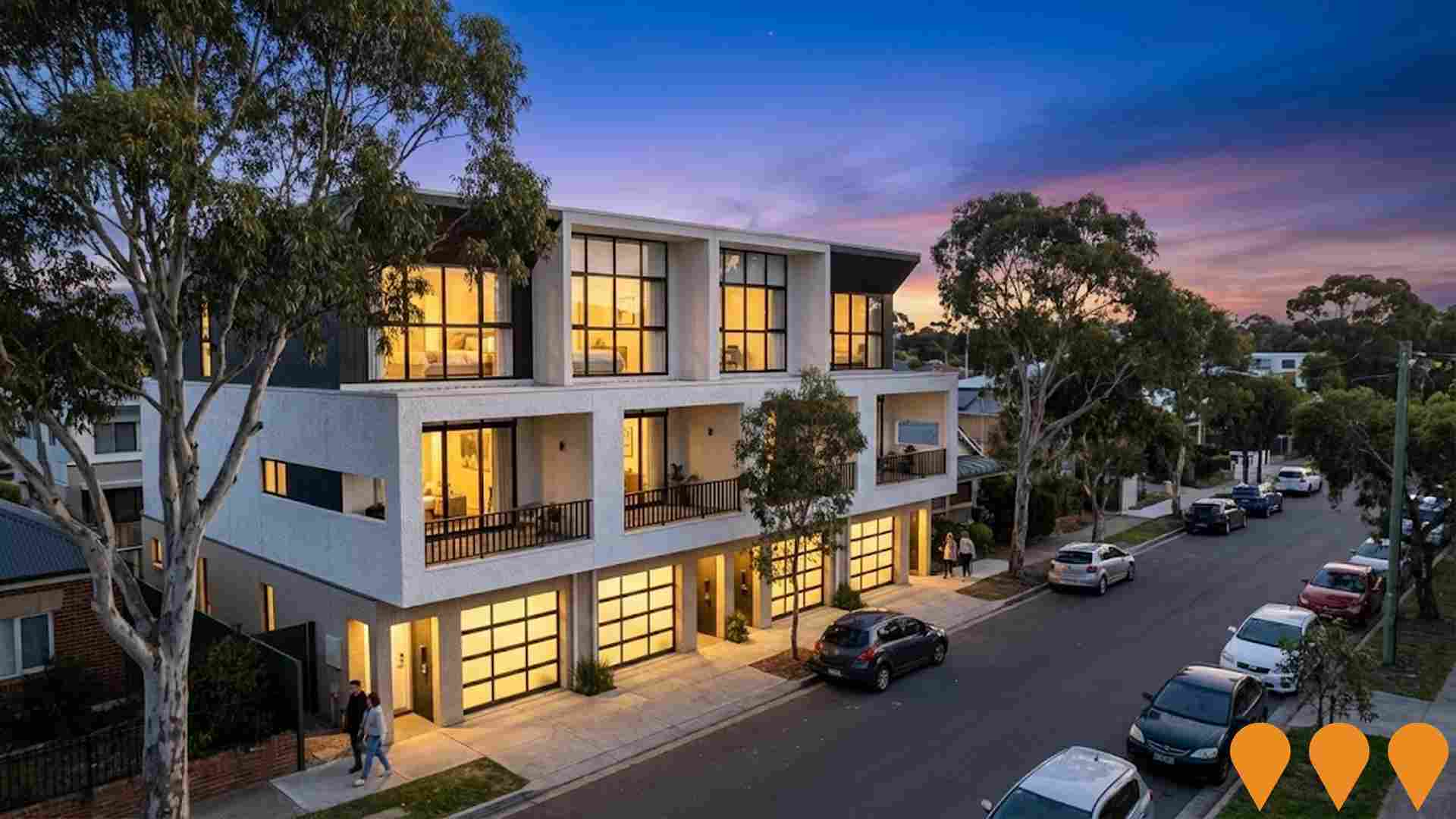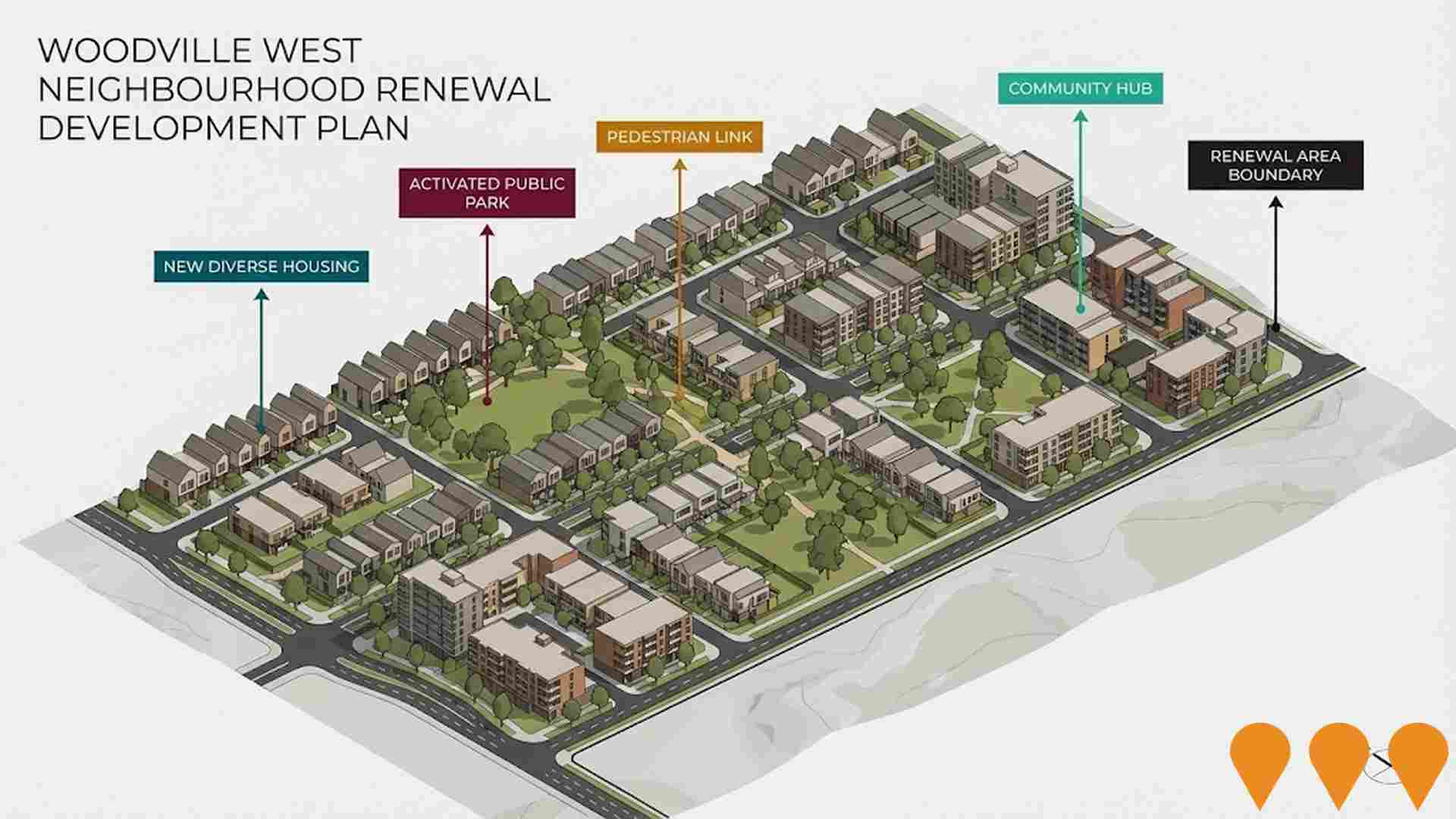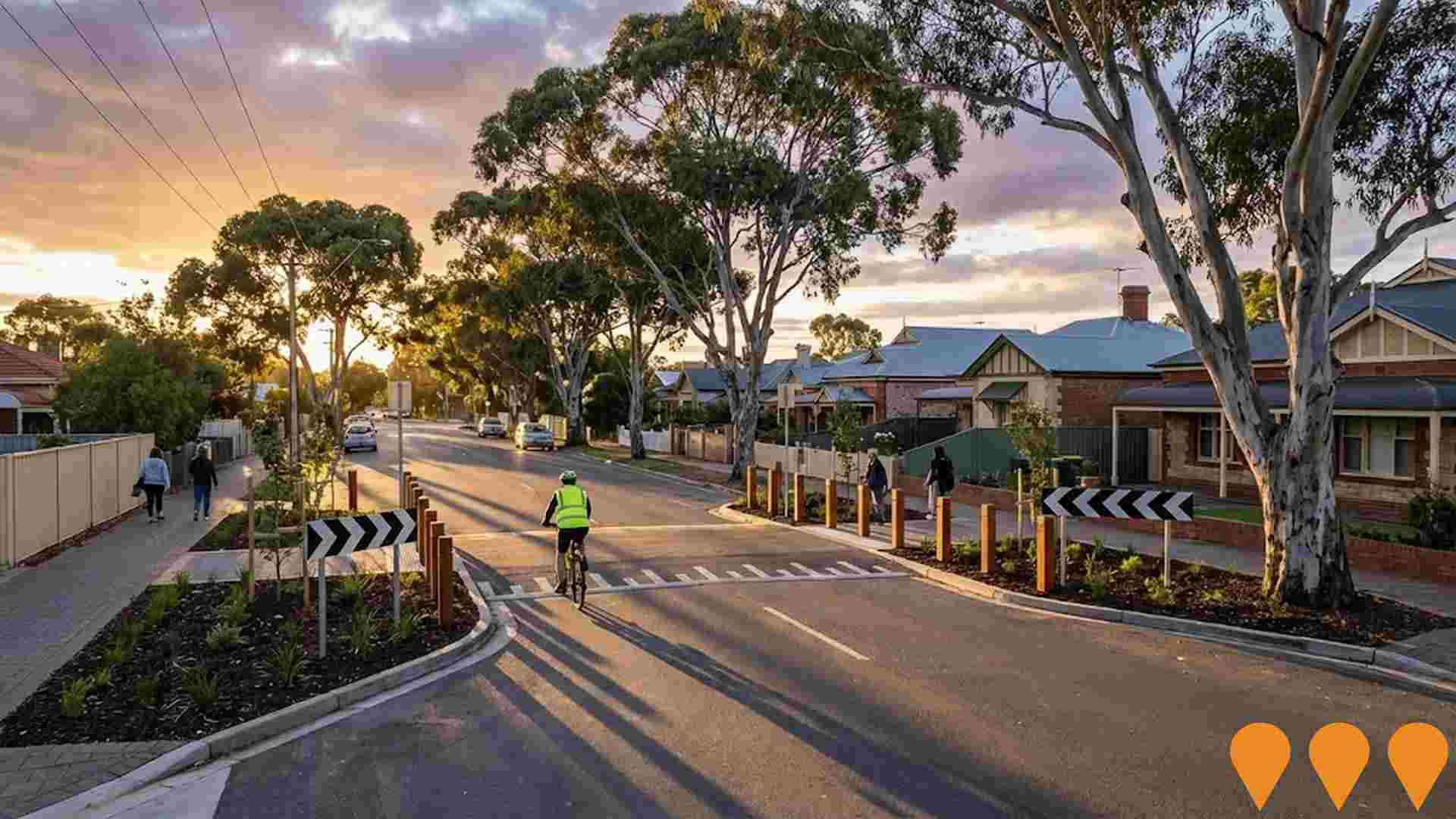Chart Color Schemes
This analysis uses ABS Statistical Areas Level 2 (SA2) boundaries, which can materially differ from Suburbs and Localities (SAL) even when sharing similar names.
SA2 boundaries are defined by the Australian Bureau of Statistics and are designed to represent communities for statistical reporting (e.g., census and ERP).
Suburbs and Localities (SAL) represent commonly-used suburb/locality names (postal-style areas) and may use different geographic boundaries. For comprehensive analysis, consider reviewing both boundary types if available.
est. as @ -- *
ABS ERP | -- people | --
2021 Census | -- people
Sales Activity
Curious about local property values? Filter the chart to assess the volume and appreciation (including resales) trends and regional comparisons, or scroll to the map below view this information at an individual property level.
Find a Recent Sale
Sales Detail
Population
Population growth drivers in Royal Park - Hendon - Albert Park are strong compared to national averages based on AreaSearch's ranking of recent, and medium to long-term trends
Based on AreaSearch's analysis, Royal Park - Hendon - Albert Park's population was around 6838 as of November 2025. This reflected an increase of 339 people (5.2%) since the 2021 Census, which reported a population of 6499 people. The change was inferred from the estimated resident population of 6799 from the ABS as of June 2024 and an additional 73 validated new addresses since the Census date. This level of population equated to a density ratio of 2104 persons per square kilometer, which was above the average seen across national locations assessed by AreaSearch. Over the past decade, Royal Park - Hendon - Albert Park demonstrated resilient growth patterns with a compound annual growth rate of 1.3%, outpacing the SA4 region. Population growth for the area was primarily driven by overseas migration that contributed approximately 63.0% of overall population gains during recent periods, although all drivers including natural growth and interstate migration were positive factors.
AreaSearch adopted ABS/Geoscience Australia projections for each SA2 area, as released in 2024 with a base year of 2022. For any SA2 areas not covered by this data, and for years post-2032, the SA State Government's Regional/LGA projections by age category were adopted, released in 2023 and based on 2021 data, with adjustments made employing a method of weighted aggregation of population growth from LGA to SA2 levels. Considering the projected demographic shifts, an above median population growth of national areas was projected, with the area expected to increase by 1261 persons to 2041 based on the latest annual ERP population numbers, reflecting an increase of 17.9% in total over the 17 years.
Frequently Asked Questions - Population
Development
AreaSearch assessment of residential approval activity sees Royal Park - Hendon - Albert Park among the top 30% of areas assessed nationwide
Royal Park - Hendon - Albert Park has averaged approximately 36 new dwelling approvals per year. Over the past five financial years, from FY21 to FY25184 homes were approved, and an additional 8 have been approved so far in FY26. Each dwelling built over these years has resulted in an average of 2.6 new residents annually, indicating strong demand that supports property values.
The average construction cost value for new homes is around $216,000, which is lower than regional levels, offering more affordable housing options. This financial year alone, $5.1 million worth of commercial development approvals have been recorded, suggesting the area's residential character. Compared to Greater Adelaide and nationally, Royal Park - Hendon - Albert Park shows approximately 65% of construction activity per person and ranks in the 71st percentile of areas assessed.
Recent construction comprises 64.0% detached houses and 36.0% townhouses or apartments, with a growing mix providing options across different price points. The location has approximately 180 people per dwelling approval, indicating a low density market. By 2041, the area is expected to grow by 1,222 residents, according to the latest AreaSearch quarterly estimate. Development is keeping pace with projected growth, though increasing competition among buyers can be anticipated as the population expands.
Frequently Asked Questions - Development
Infrastructure
Royal Park - Hendon - Albert Park has limited levels of nearby infrastructure activity, ranking in the 14thth percentile nationally
Changes to local infrastructure significantly influence an area's performance. AreaSearch identified 22 projects that could impact this region. Notable initiatives include Findon Energy Storage Facility, Grange Healthcare Precinct, Findon Road Upgrade, and Woodville Rd Estate. The following details those projects likely to be most relevant.
Professional plan users can use the search below to filter and access additional projects.
INFRASTRUCTURE SEARCH
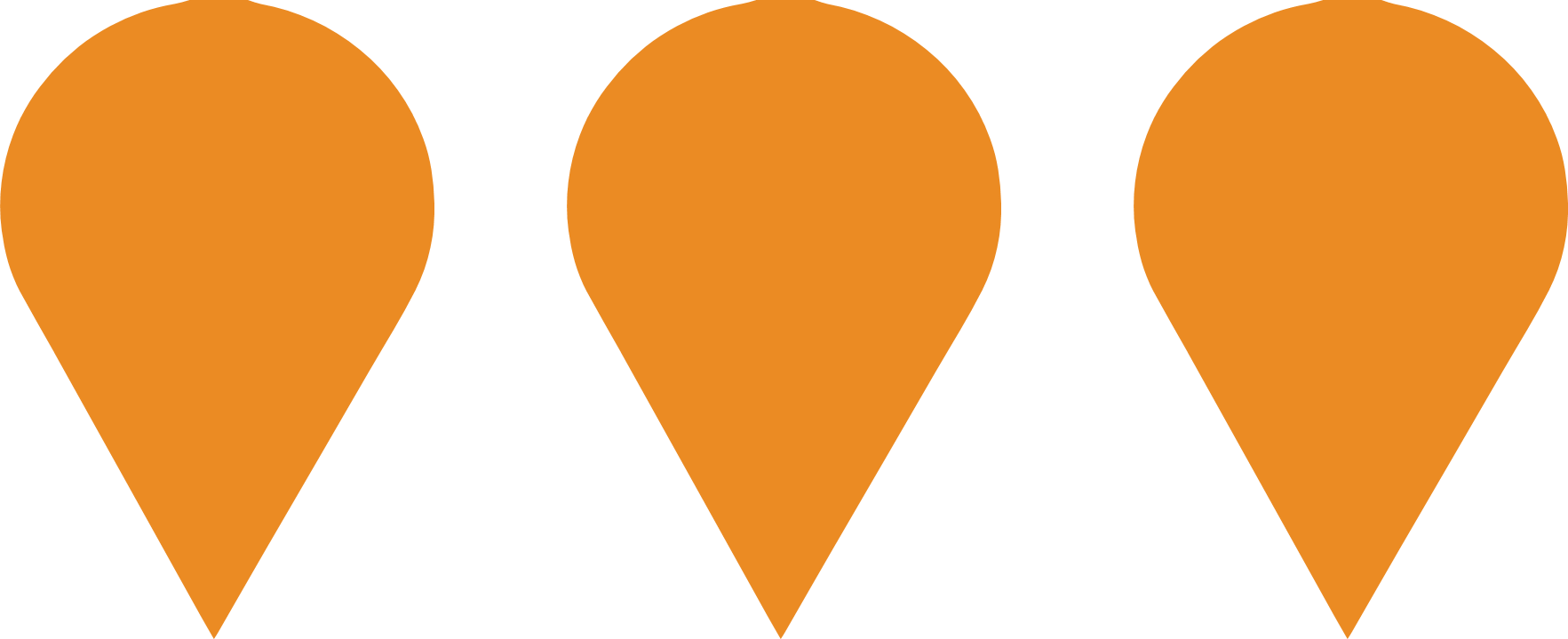 Denotes AI-based impression for illustrative purposes only, not to be taken as definitive under any circumstances. Please follow links and conduct other investigations from the project's source for actual imagery. Developers and project owners wishing us to use original imagery please Contact Us and we will do so.
Denotes AI-based impression for illustrative purposes only, not to be taken as definitive under any circumstances. Please follow links and conduct other investigations from the project's source for actual imagery. Developers and project owners wishing us to use original imagery please Contact Us and we will do so.
Frequently Asked Questions - Infrastructure
Findon Energy Storage Facility
Large-scale battery energy storage system supporting grid stability and renewable energy integration for the western Adelaide region.
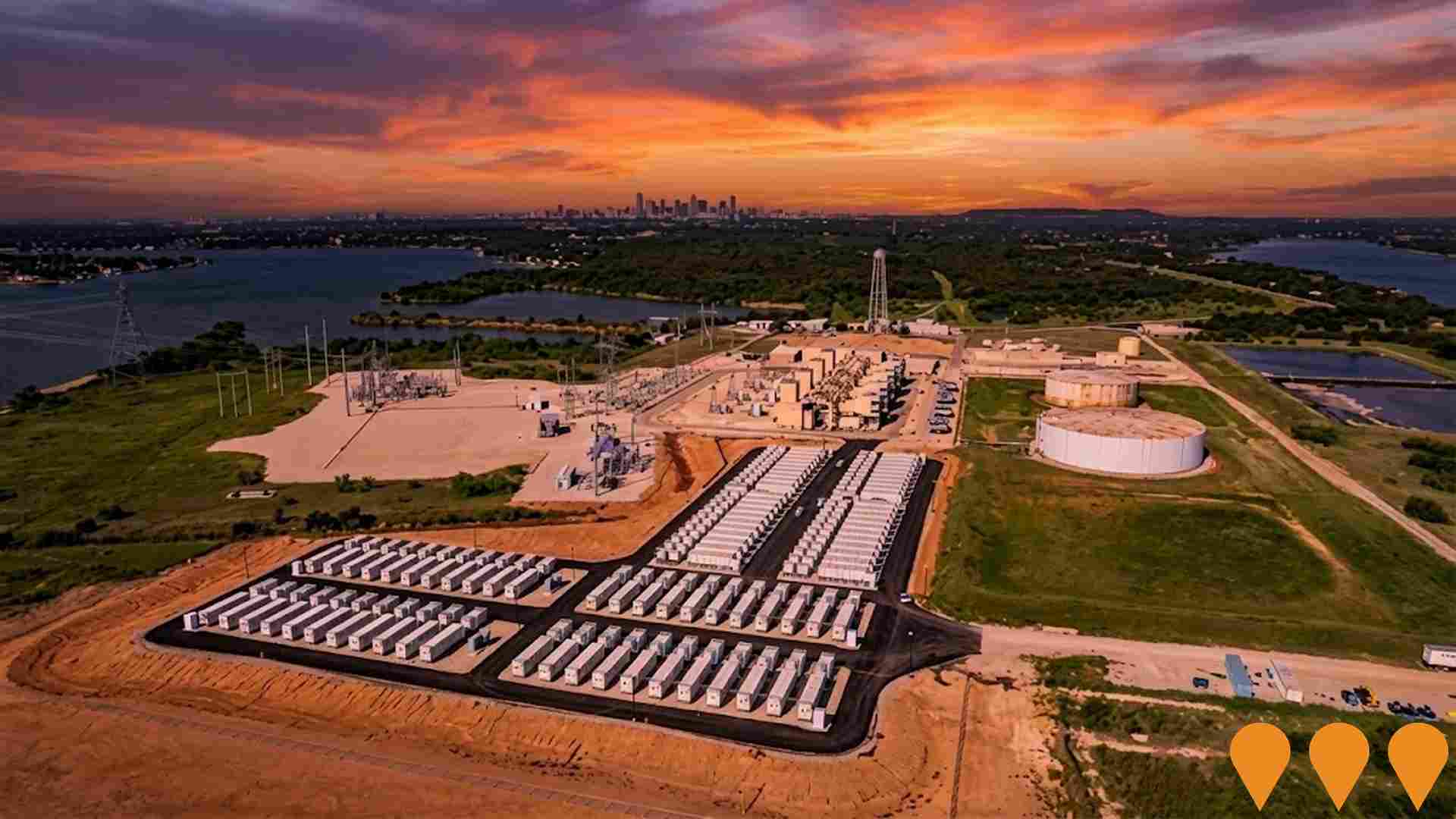
Grange Healthcare Precinct
Proposed SA Health healthcare precinct in the Grange Findon corridor in western Adelaide, expanding aged care, community mental health and primary health services for older residents and the local community. The project remains in the proposal and planning phase with an indicative completion target around 2027.
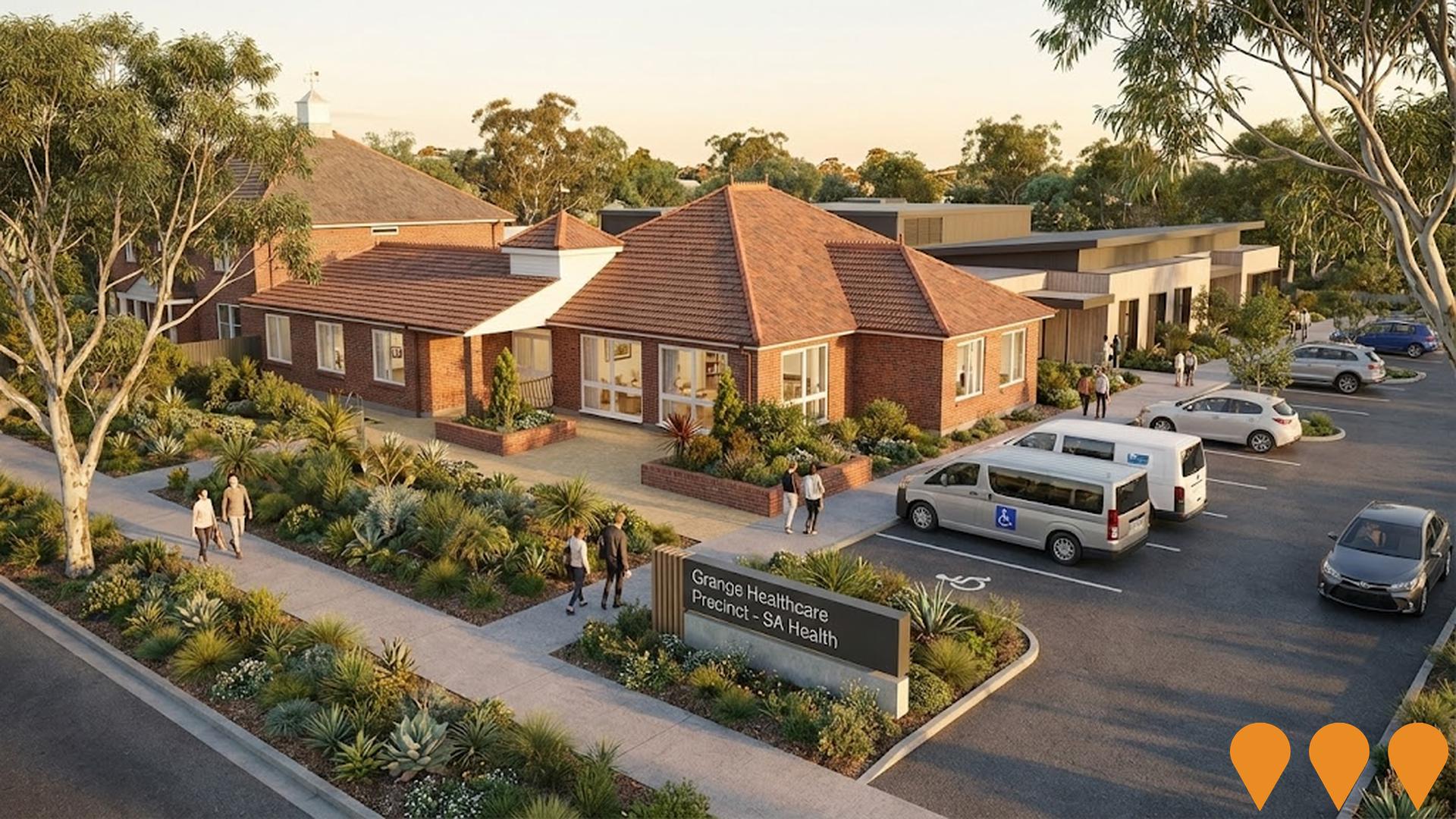
Woodville Road Streetscape Upgrade
An $8.4 million streetscape transformation enhancing Woodville Road between Port Road and the railway line. The project features tree-lined central medians, underground powerlines, public art including indigenous artwork, improved pedestrian crossings, sheltered right-turn lanes, smart technology integration, and green spaces. Completed with official opening in February 2024, the upgrade respects the area's heritage while creating an accessible, vibrant urban corridor.
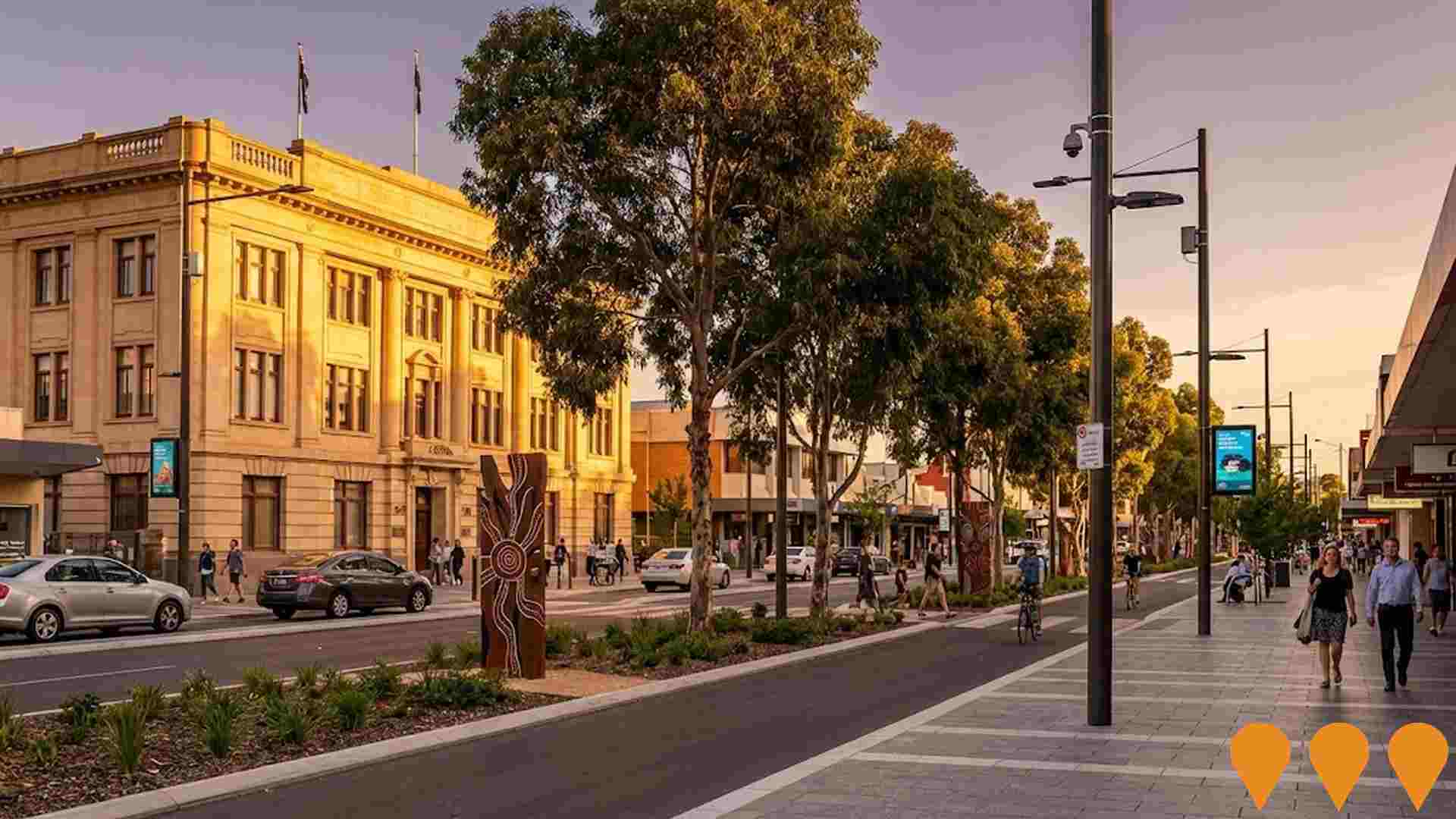
Findon Road Upgrade
Major road infrastructure upgrade including intersection improvements, cycling infrastructure, and public transport enhancements along Findon Road corridor.
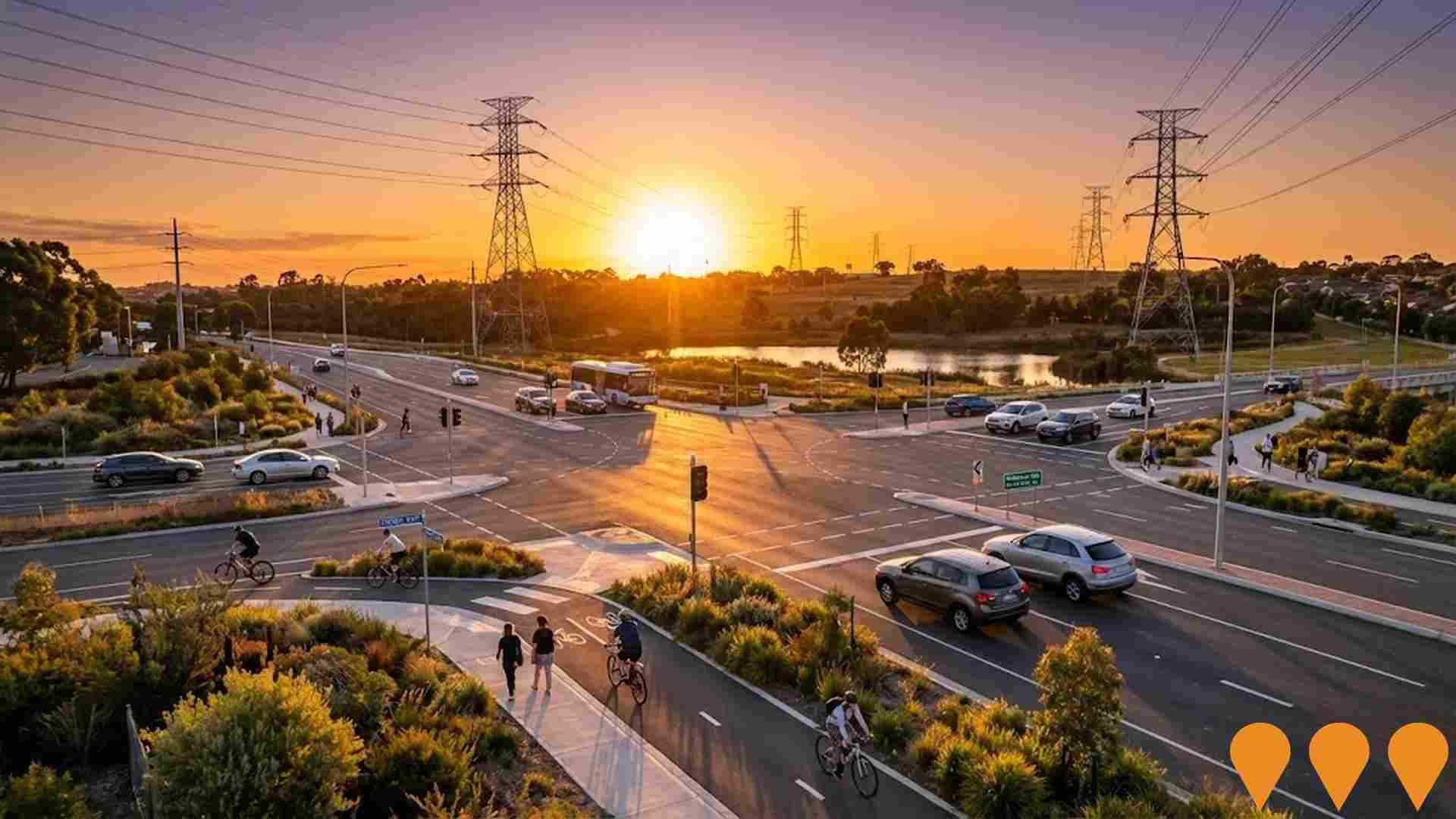
St Clair Precinct Community Facility
State Government pledged funding to upgrade the St Clair oval precinct including a new community facility at Oval 2. Following 2024 consultation, Council deferred construction and will prepare a precinct-wide master plan to resolve design, access, parking and cricket nets issues. The facility remains on hold pending outcomes of the master plan.
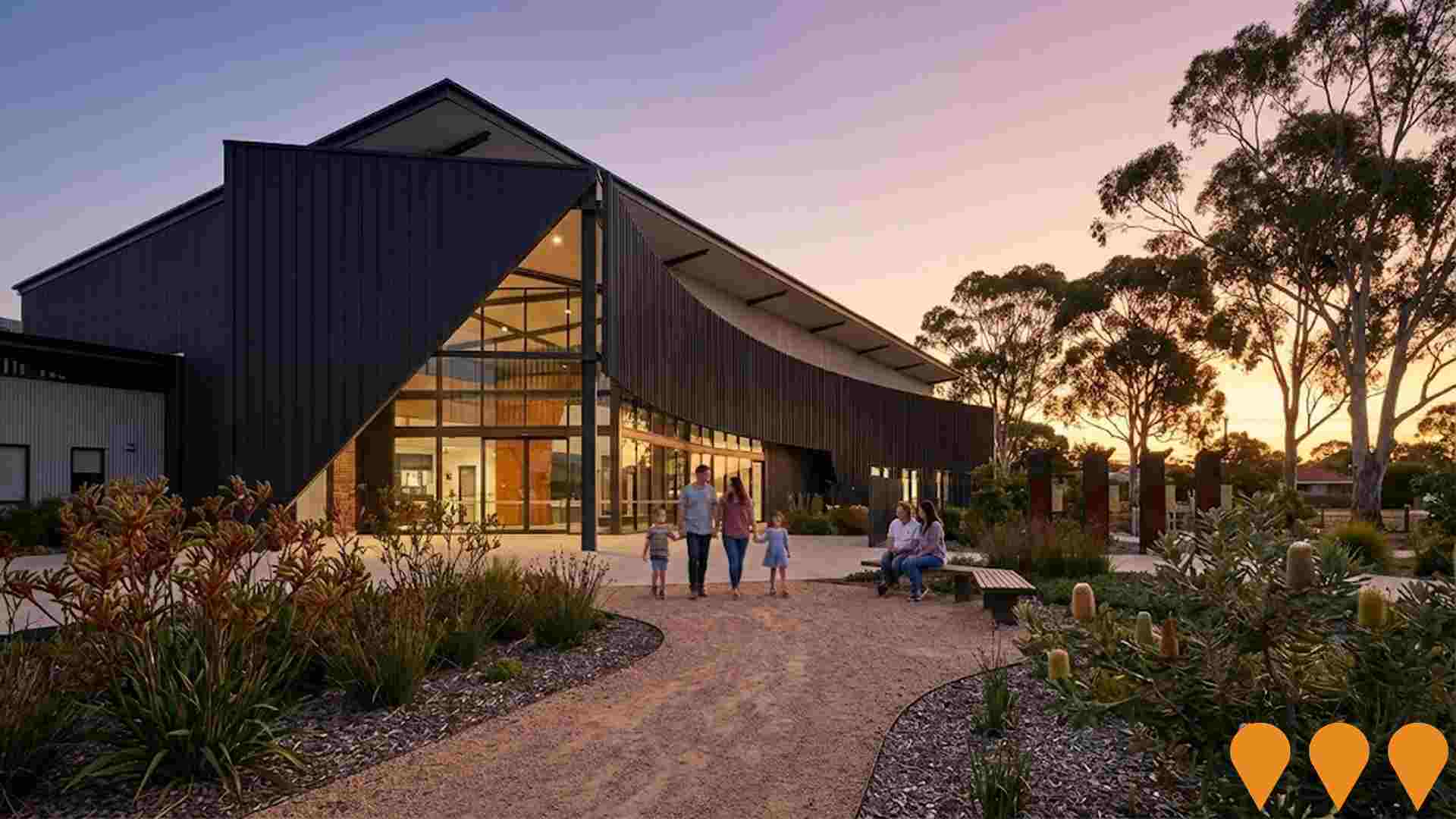
Findon Technical College
Multi-million-dollar technical college focused on advanced manufacturing, early childhood care and health. Part of $208.8 million commitment to build five technical colleges across South Australia. Includes $10 million in infrastructure upgrades to Findon High School.
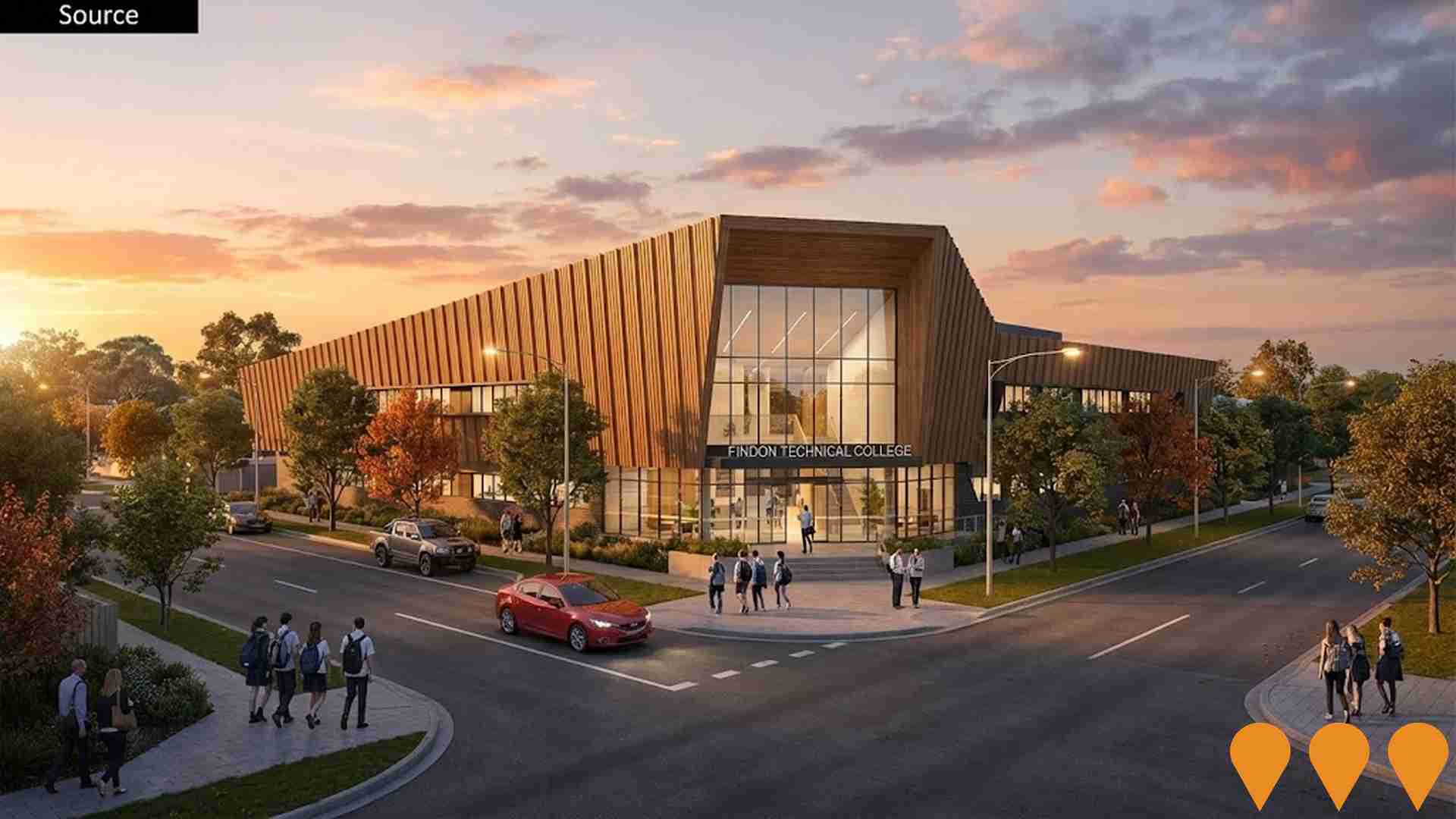
Findon Railway Station Upgrade
Railway station modernization including platform extensions, accessibility improvements, and integration with Gawler line electrification project.
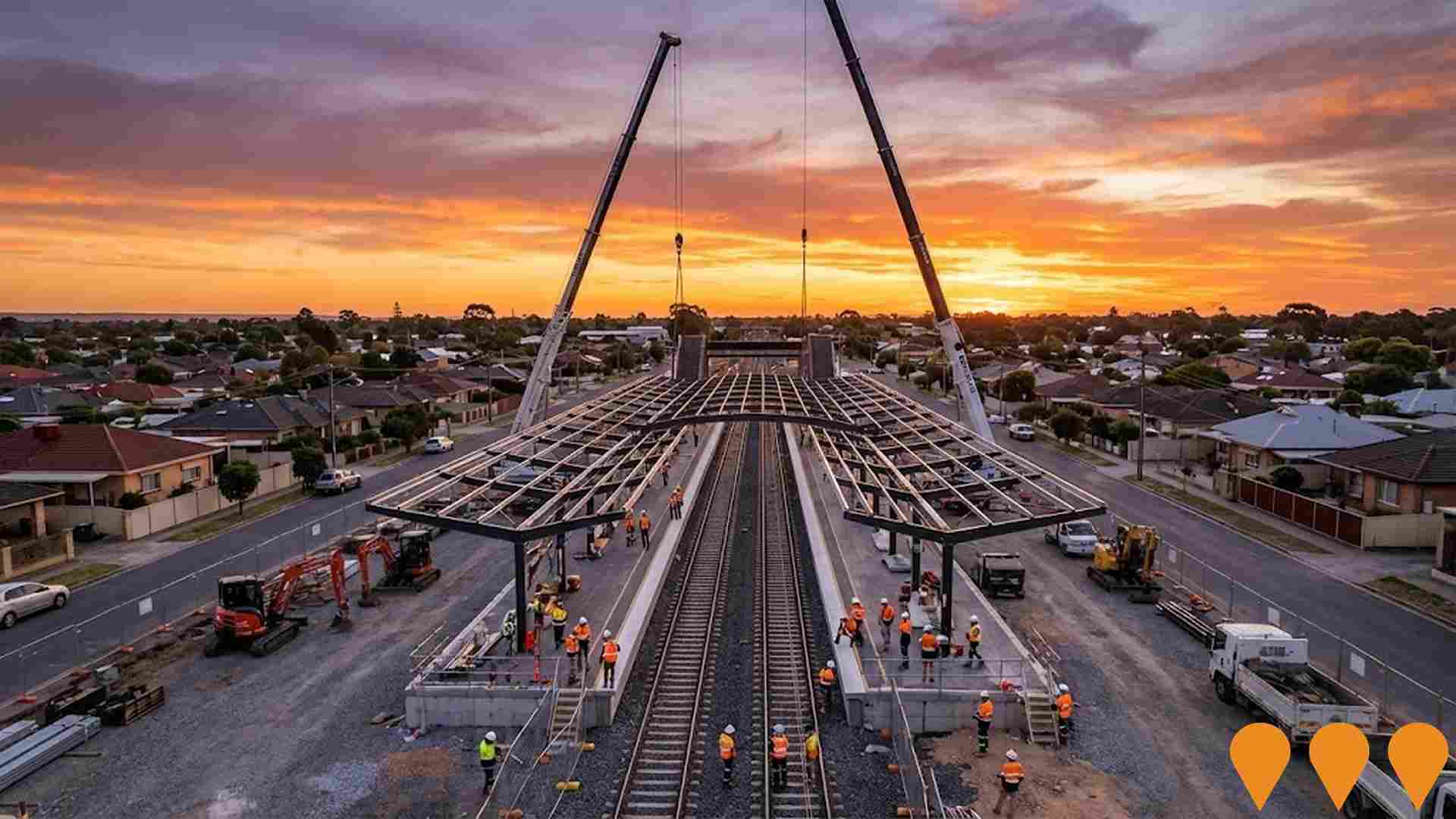
St Clair Village - Stage 6 & 7
Final residential and mixed-use stages of the St Clair masterplanned community, located on the vacant allotment north of the St Clair Village Shopping Centre. A Code Amendment was lodged in May 2025 by landowner ISPT to rezone the site to a 'Suburban Activity Centre' and increase maximum building heights to 7 storeys to support higher-density living.
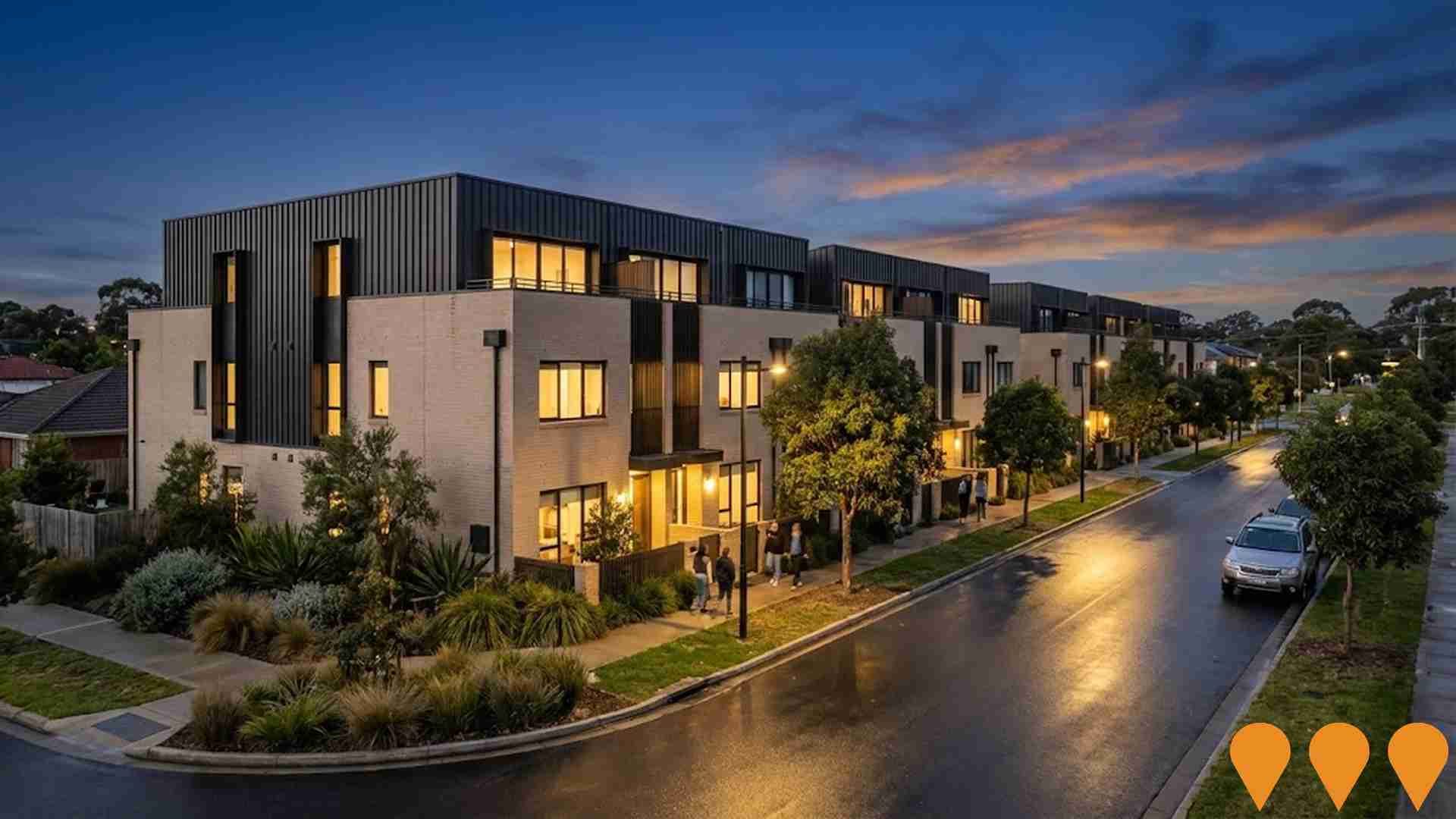
Employment
The labour market in Royal Park - Hendon - Albert Park demonstrates typical performance when compared to similar areas across Australia
Royal Park - Hendon - Albert Park has an unemployment rate of 4.2% as of September 2025. This is 0.3% higher than Greater Adelaide's rate of 3.9%.
The workforce participation rate in the area is similar to Greater Adelaide's at 61.7%. The leading employment industries among residents are health care & social assistance, retail trade, and construction. Notably, construction employs 1.3 times the regional average. However, professional & technical services employ only 4.3% of local workers, below Greater Adelaide's 7.3%.
In the past year, ending September 2025, employment increased by 4.4%, while the labour force grew by 4.1%, reducing the unemployment rate by 0.4 percentage points. Comparatively, Greater Adelaide saw employment growth of 3.0% and a 0.1 percentage point decrease in unemployment. State-level data from November 25 shows South Australia's employment grew by 1.19% year-on-year, with an unemployment rate of 4.0%. Nationally, the unemployment rate is 4.3%, with SA's employment growth outpacing the national average of 0.14%. Jobs and Skills Australia forecasts national employment to expand by 6.6% over five years and 13.7% over ten years. Applying these projections to Royal Park - Hendon - Albert Park's employment mix suggests local employment should increase by 6.3% over five years and 13.3% over ten years, based on a simple weighting extrapolation for illustrative purposes.
Frequently Asked Questions - Employment
Income
The area's income profile falls below national averages based on AreaSearch analysis
Royal Park - Hendon - Albert Park SA2 had a median taxpayer income of $53,868 and an average of $59,278 in the financial year 2022, according to postcode level ATO data aggregated by AreaSearch. This is lower than national averages; Greater Adelaide's median income was $52,592 with an average of $64,886. As of September 2025, estimated incomes would be approximately $60,779 (median) and $66,883 (average), based on a 12.83% Wage Price Index growth since financial year 2022. Incomes in Royal Park - Hendon - Albert Park ranked modestly according to the 2021 Census figures, between the 30th and 36th percentiles for household, family, and personal incomes. The income bracket of $1,500 - $2,999 dominated with 33.7% of residents (2,304 people), similar to regional levels at 31.8%. Housing affordability pressures were severe, with only 82.7% of income remaining, ranking at the 28th percentile.
Frequently Asked Questions - Income
Housing
Royal Park - Hendon - Albert Park is characterized by a predominantly suburban housing profile, with ownership patterns similar to the broader region
In Royal Park - Hendon - Albert Park, as per the latest Census evaluation, 78.3% of dwellings were houses, with 21.6% being semi-detached, apartments, or other types. This contrasts with Adelaide metro's figures of 66.1% houses and 33.9% other dwellings. Home ownership in Royal Park - Hendon - Albert Park stood at 28.3%, with mortgaged dwellings at 40.2% and rented ones at 31.5%. The median monthly mortgage repayment was $1,600, lower than Adelaide metro's average of $1,733. The median weekly rent figure in the area was $314, compared to Adelaide metro's $325. Nationally, Royal Park - Hendon - Albert Park's mortgage repayments were significantly lower than the Australian average of $1,863, while rents were substantially below the national figure of $375.
Frequently Asked Questions - Housing
Household Composition
Royal Park - Hendon - Albert Park features high concentrations of lone person households, with a lower-than-average median household size
Family households account for 65.6% of all households, including 27.2% couples with children, 22.8% couples without children, and 14.3% single parent families. Non-family households comprise the remaining 34.4%, with lone person households at 31.3% and group households making up 3.0%. The median household size is 2.3 people, which is smaller than the Greater Adelaide average of 2.4.
Frequently Asked Questions - Households
Local Schools & Education
Educational outcomes in Royal Park - Hendon - Albert Park fall within the lower quartile nationally, indicating opportunities for improvement in qualification attainment
The area's university qualification rate is 19.6%, significantly lower than the Australian average of 30.4%. Bachelor degrees are the most common at 13.9%, followed by postgraduate qualifications (3.7%) and graduate diplomas (2.0%). Vocational credentials are also prevalent, with 35.2% of residents aged 15+ holding them – advanced diplomas at 9.5% and certificates at 25.7%. A total of 24.8% of the population is actively pursuing formal education, including 8.1% in primary, 5.7% in secondary, and 5.0% in tertiary education.
A substantial 24.8% of the population actively pursues formal education. This includes 8.1% in primary education, 5.7% in secondary education, and 5.0% pursuing tertiary education.
Frequently Asked Questions - Education
Schools Detail
Nearby Services & Amenities
Transport
Transport servicing is moderate compared to other areas nationally based on assessment of service frequency, route connectivity and accessibility
The analysis shows that there are currently 38 operational public transport stops within the area encompassing Royal Park, Hendon, and Albert Park. These stops offer a combination of train and bus services, with 15 unique routes serving them collectively facilitating 1,073 weekly passenger trips. The accessibility to these transport options is rated as excellent, with residents typically residing just 166 meters away from the nearest stop.
On average, there are 153 trips per day across all routes, translating to approximately 28 weekly trips per individual stop.
Frequently Asked Questions - Transport
Transport Stops Detail
Health
Health performance in Royal Park - Hendon - Albert Park is lower than average with common health conditions somewhat prevalent across the board, though to a considerably higher degree among older age cohorts
Royal Park - Hendon - Albert Park faces significant health challenges. Common health conditions are somewhat prevalent across all age groups but to a higher degree among older cohorts. Private health cover is relatively low at approximately 49% of the total population (~3,357 people), compared to 52.8% in Greater Adelaide and the national average of 55.3%.
The most common medical conditions are mental health issues impacting 9.2% of residents and arthritis affecting 8.6%. Sixty-six percent declared themselves completely clear of medical ailments, compared to 68.9% across Greater Adelaide. Fifteen point eight percent of residents are aged 65 and over (1,077 people), lower than the 20.0% in Greater Adelaide. Health outcomes among seniors require more attention than the broader population.
Frequently Asked Questions - Health
Cultural Diversity
The level of cultural diversity witnessed in Royal Park - Hendon - Albert Park was found to be above average when compared nationally for a number of language and cultural background related metrics
Royal Park-Hendon-Albert Park, surveyed in June 2016, exhibited significant cultural diversity with 25.9% of its population born overseas and 26.6% speaking a language other than English at home. Christianity was the dominant religion, comprising 51.2% of the population. The 'Other' religion category showed slight overrepresentation at 1.7%, compared to the Greater Adelaide average of 1.8%.
Regarding ancestry, the top groups were English (22.8%), Australian (21.3%), and Other (9.7%). Notable ethnic group divergences included Serbian (3.7% vs regional 1.3%), Polish (2.3% vs 1.4%), and Croatian (1.7% vs 1.1%).
Frequently Asked Questions - Diversity
Age
Royal Park - Hendon - Albert Park's population is slightly younger than the national pattern
The median age in Royal Park-Hendon-Albert Park is 37 years, which is lower than Greater Adelaide's average of 39 years and close to the national average of 38 years. The 25-34 cohort makes up 18.9% of the local population, higher than the Greater Adelaide average, while those aged 75-84 are under-represented at 4.3%. According to post-2021 Census data, the 25-34 age group has increased from 16.9% to 18.9%, and the 55-64 cohort has decreased from 12.4% to 10.6%. By 2041, population forecasts indicate significant demographic changes in Royal Park-Hendon-Albert Park, with the 25-34 group expected to grow by 18% (235 people), reaching 1,528 from 1,292.
